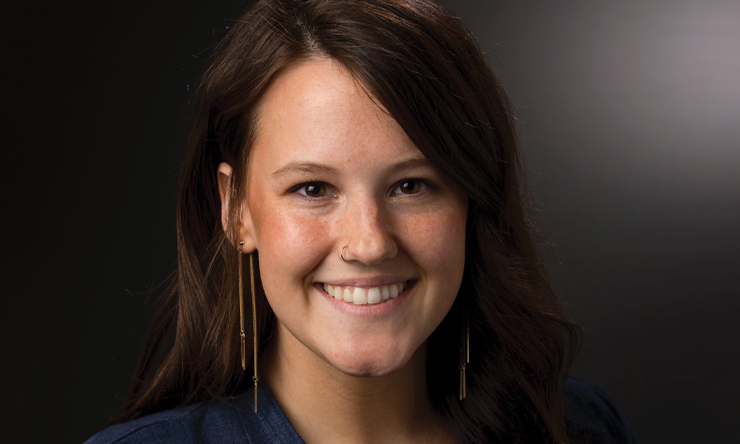After playing football well enough at St. Ambrose to win the attention of the Chicago Bears, Mitchell Ware '55 earned a law degree while working in drug enforcement on Chicago's meanest streets. He next worked as a Chicago TV reporter, then led state and city-wide police agencies, then built Illinois' largest minority-led law partnership, and then served as a justice of the Circuit Court of Cook County.
That is an accomplished lifetime of leadership the SAU alum will describe on Saturday, Feb. 6, as the keynote speaker at the sixth annual Destination: Leadership Conference in the Rogalski Center ballroom. The day filled with leadership programming is offered at no charge to St. Ambrose students with the intent of enhancing their leadership skills and their commitment to social justice.
Retired from the bench since 2009, Ware will speak at 12:15, following a luncheon. The conference will begin with registration from 9-9:30 a.m., and conclude at 2:30 p.m. It will feature opening remarks followed by three breakout sessions, each with five speakers addressing distinct leadership topics.
Breakout session speakers include St. Ambrose students and faculty, as well as alumni and community leaders. The annual conference is a collaboration between Academic and Student Affairs and St. Ambrose student leaders.
Ware is returning to a campus where he stood out as a football running back and linebacker and also reveled in the challenges he found in the classroom.
"It was a great school," he said. "I had scored a lot of touchdowns and ran for a lot of yards, when one professor, a brand new English teacher, found out I was a football player and said, 'Let me tell you something. I flunk football players who don't do their work.'"
That was not a problem for Ware, who came to St. Ambrose on an athletic scholarship in the fall of 1951. "I maintained a pretty good grade-point average," he said. "I knew you couldn't play football all your life."
Raised by adoptive working-class parents in Chicago, Ware was one of just two black students on campus when he arrived but he said felt welcomed and accepted from the very beginning, which is something he didn't always feel in urban Chicago.
He still vividly remembers the racial taunts he and teammates from St. Elizabeth High School endured when they visited predominantly white opponents in the Chicago Catholic League. "One school, they started playing the song Old Black Joe when we came out," Ware said. "Things like that have some kind of affect on you. And then I get to St. Ambrose and here is a school where everybody treats you like they want to be treated."
The retired judge still can recite the names of the St. Ambrose teammates, classmates, coaches and professors who made him feel readily accepted. He also can list in detail a lifelong résumé so extensive, it reads like the outline to a movie script.
After a record-setting career on the gridiron for St. Ambrose, Ware was drafted not by the NFL Bears, but instead by the US Army. His two-year stint in the military ended early, though, when Bears coach and founder George Halas wrote the Army asking that Ware be allowed to attend summer training camp. Ware did not make the regular-season roster, but did see action in a preseason game, lining up across from fellow St. Ambrose alum Art Michalik '51.
The end of Ware's football career was the beginning of an accomplished Ambrosian life. He became a narcotics agent to pay his way through law school at the University of DePaul, taking classes at night. After graduating, he joined the DePaul law school faculty and worked simultaneously as a television news reporter.
Ware worked only a year in TV news, but that year was 1968. He covered the Chicago Democratic convention, as well as the bloody confrontations between police and anti-war protestors outside the convention hall that came to epitomize the contentious '60s.
"I covered the Black Panthers and the Weathermen, too," Ware said. "I was not afraid. I didn't mind going into places and trying to get the truth."
Because Ware had been equally intrepid as a narcotics cop, Illinois Gov. Richard Ogilvie asked him in 1969 to take the helm of a start-up, statewide narcotics bureau, making Ware the first black man to lead a statewide law enforcement agency in the US. While still in that role, he served by appointment of President Richard Nixon on a national commission to study drug abuse.
In 1972, he became the deputy superintendent of the Chicago Police Department. Six years later, Ware finally began to practice law full time. He was appointed to the Cook County bench in 1998 and served in that capacity until his retirement seven years ago.
Given all he has accomplished, you might think it obvious Ware would have gone on to do great things, even had a St. Ambrose football scholarship not been made available.
That is not obvious to him, however.
"St. Ambrose played a big role in my life," Ware said. "It gave me a perspective on a lot of things I really had not been able to envision before going there."
Share This Story



